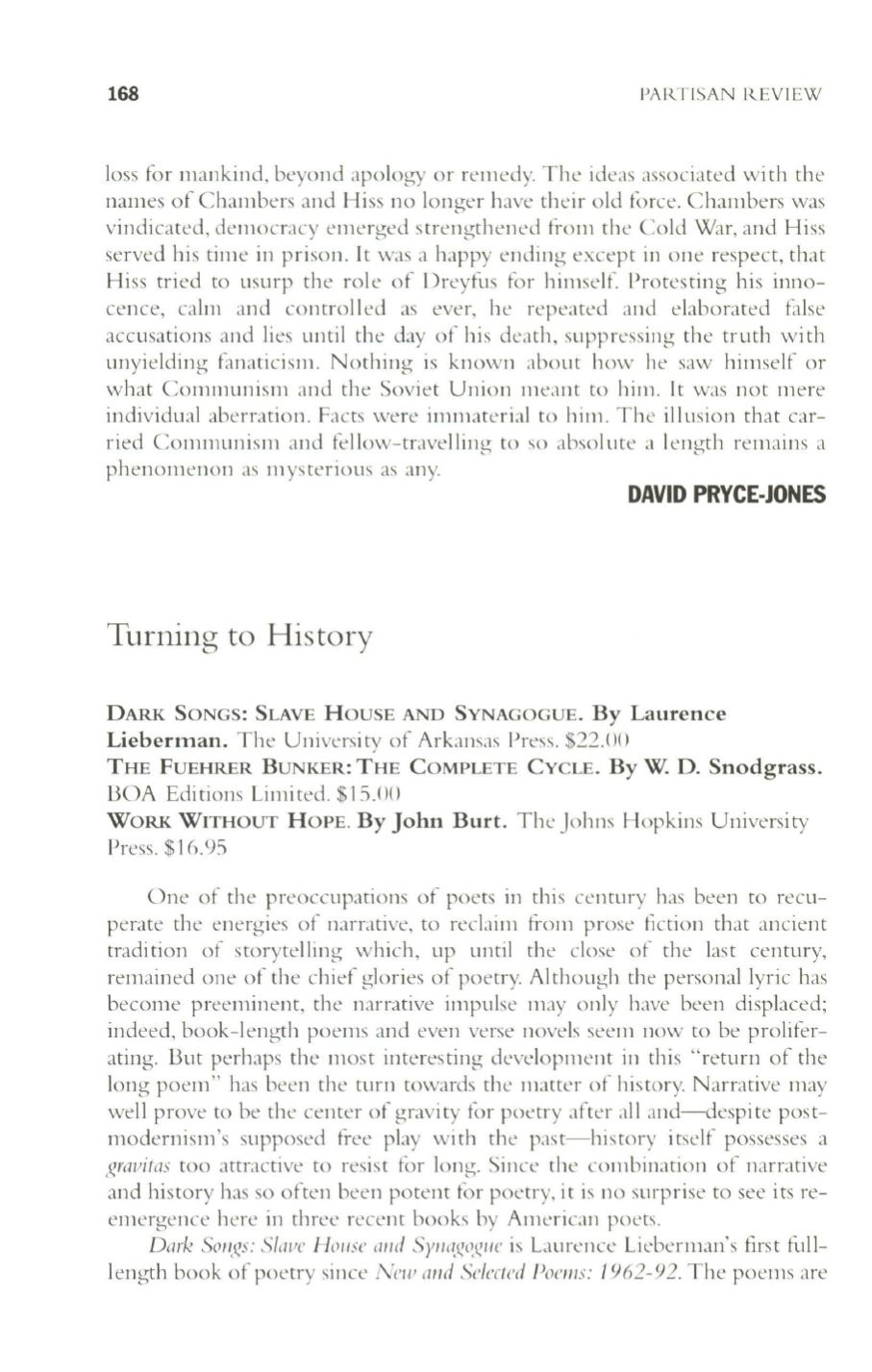
168
I'AIUISAN REVIEW
loss for mankind, beyond apology or remedy. The ideas associated wi th the
names of Chambers and Hiss no longer have their old force . Chambers was
vindicated, democracy emerged strengthelled fi-om the Cold War, and Hiss
served his time in prison.
It
was a happy ending except in olle respect, that
Hiss tried to usurp the role of Dreyfus for himself. Protesting his inno–
cence, calm and controlled as ever, he repeated and elaborated false
accusations and lies ulltil the day of his death, suppress ing the truth with
unyielding fanaticism. Nothing is known :1bout how he saw himself or
what Communism and the Soviet Union meallt to him.
It
was not mere
individual aberration. Facts were immaterial to hilll. The illusion that car–
ried Communism alld fellow-travelling to so abso lu te a length remains a
phenomenon as mysterious as any.
DAVID PRYCE-JONES
Turning to His tory
DARK
SONGS: SLAVE HOUSE AND SYNAGOGUE . By Laurence
Lieberman.
The University of Arkallsas Press. $22.()()
THE
FUEHRER BUNKER:
THE
COMPLETE CYCLE. By W.
D.
Snodgrass.
BOA Edi tions Limi ted. $15.00
WORK WITHOUT HOPE. By John Burt.
The Johns Hopkins University
Press. $16.95
One of the preoccupations of poets ill this celltury has been to recu–
perate the energies of narrative, to reclaim from prose fIction that ancient
tradition of storytelling which, up until the close of the last century,
remained one of the ch ief glories of poetry. Al though the personal lyric has
become preeminent, the narrative impulse may only have been displaced;
indeed, book-length poems and even verse novels seem now to be prolifer–
ating. But perhaps the most interesting developmellt ill this "return of the
long poem" has been the turn towards the matter of history. Narrative may
well prove to be the center of gravi ty for poetry after all and-despi te post–
modernism's supposed free play with the past- history itself possesses a
JZYllvifas
too attractive to resist for long. Since the combination of narrative
and history has so oftell been potent for poetry, it is
110
surprise to see its re–
emergence here in three recent books by American poets.
Dark SOI/,IZS: Sll1llc HOl/se al/d
SYl/a<IZ(~IZI/C
is Laurellce Lieberman's first full–
length book of poetry sin ce
N(w al/d Sclcctcd POI'IIIS:
1962-92.
The poems are


